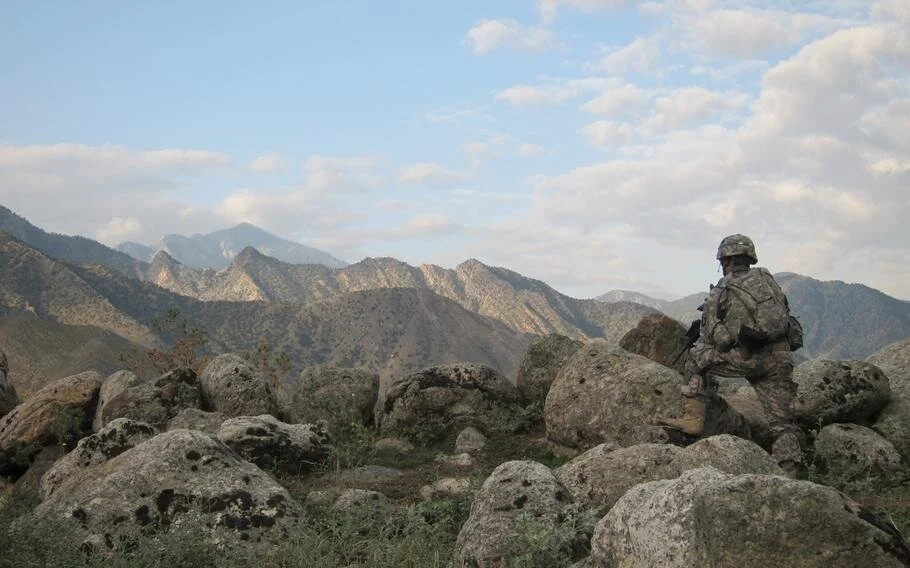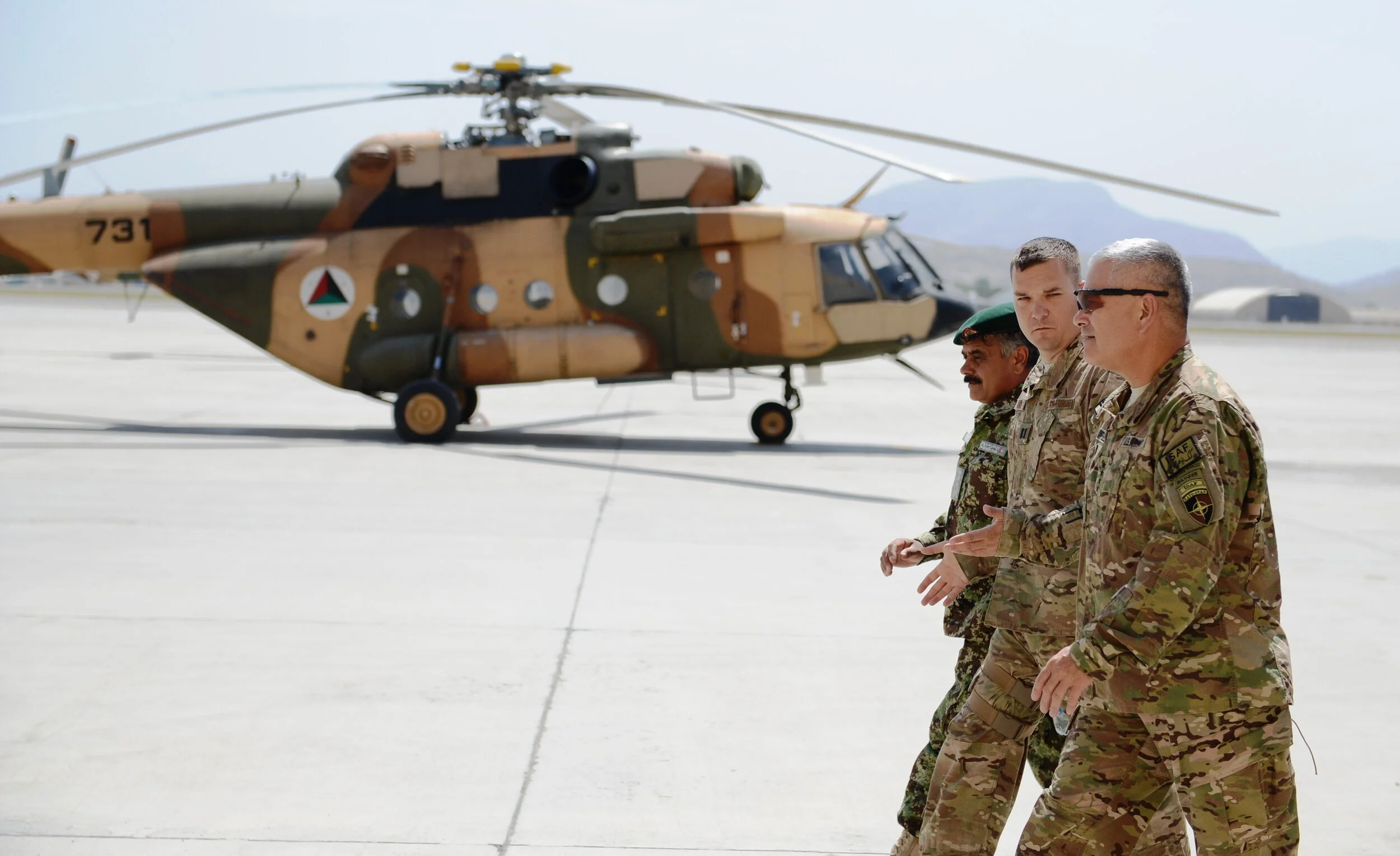In his novel The Lone Leopard, Sharifullah Dorani provides a sweeping view of the struggle that Afghans endured under the burden of foreign influence, ethnic and religious seams, and the clash between traditional conservative cultural norms versus more modern liberal western ideals. The book does an excellent job of bringing the reader into the complicated societal mosaic that makes Afghanistan so unique.
#Reviewing The Inheritance
Mara E. Karlin’s new book, The Inheritance: America’s Military After Two Decades of War is a sobering yet necessary read. In looking at the effects of the post-9/11 wars on the U.S. military, she asks—and proposes answers to—two questions. First, “[h]ow did the most capable military in U.S. history—indeed in the history of the world—fight to, at best, a draw in its longest contemporary conflict?” And second, “why has this not been the subject of greater reflection and debate.”
#Reviewing The Wolves of Helmand
Overall, Biggio conveys a great deal of information in a compact, highly-readable form. He touches lightly, but from the heart, on serious topics which makes this an accessible book for even the least militarily-savvy reader. An informed reader will appreciate the tale, while less-knowledgeable readers will enjoy gaining a broad understanding of the events without having to consult references.
Sanctuary as a Concept in the Cold War and the Global War on Terror: #Reviewing Streets Without Joy
Innes’ work is an important starting place for any scholar or practitioner seeking to understand the significance of sanctuary as a guiding concept as well as the evolution of Cold War thinking through the era of globalization and the U.S. Global War on Terror. His book is a superb example of blending real world experience with in-depth research and analysis. Its insightful examination of the shifting definitions and uses of the concept of sanctuary offers important cautions for the present as it reveals the blind spots of the past.
#Reviewing First Platoon
Annie Jacobsen shows the reality of the concept of identity dominance over a population in First Platoon. She weaves together her main themes through four questions—what are the boundaries of a persistent surveillance state enabled by advances in biometrics; who should own and have access to biometric data of a population; how has the face of battle changed in an identity dominance environment; and what is justice in this new environment?
#Reviewing The Afghanistan Papers
Craig Whitlock’s The Afghanistan Papers: A Secret History of the War is essential reading for national security scholars, and anyone interested in a bureaucratic history of America’s longest war. His research illustrates some truly dispiriting failures of American foreign policy formulation, military planning, and program execution. The book also serves as a bitter reminder that the state will lie to the public and often for less than noble purposes.
Strategic Drift in Afghanistan, from Bonn to the National Elections
Wars rarely follow straight paths from beginning to end. Belligerents constantly shift, seeking advantage and adapting to change, and the interaction takes its participants to places unimagined at the war's inception. Such has been the case for the American' war in Afghanistan. The U.S. started with clear strategic aims: defeat al-Qaeda and their Taliban hosts. Within months, military action had accomplished both. Yet, having achieved those aims, the war continued to escalate, and the war deviated from its expected path.
Oxytocin Beats Testosterone? #Reviewing Why We Fight
This book gives the reader much to consider and is particularly useful due to its unique approach that complements works in other fields like political science. There are no easy answers to why we fight. Regardless of some of oxytocin’s evolutionary victories over testosterone, this book provides much to ponder and understand regarding the inherent job security of being in the business of war.
#Reviewing The Hardest Place
The Hardest Place is an incredibly well-written piece of non-fiction that blends aspects of both an action novel and a history lesson. Morgan puts a human face on both sides of the conflict in all its facets by continuously highlighting the individual stories of the women and men who served there. Military students of history, along with anyone interested in America’s longest war, would benefit from reading this excellent book. The military profession has a duty to learn from the conflict, and this book is an essential introduction to a small piece that represents much of the trouble with the broader whole.
#Reviewing Docu-Fictions of War
Docu-Fictions of War is a unique investigation into popular culture’s depictions of war, and how civilian narratives interact with military storylines. A reader might be left wanting more artistic explorations, but its contributions to strategic studies are plentiful. That said, with hundreds of sources and a dense epistemological basis, it is not for the faint of heart. The analysis provided by Dr. Prorokova is thought-provoking, even if one is not inclined to accept certain epistemologies, and asserts a robust argument for America’s humanitarian rationale. Docu-Fictions of War is a seminal piece on war narratives that deserves every policymaker’s attention.
Afghanistan’s Policing Failure and the Uncertain Way Forward
Of the many shortcomings of American strategy in Afghanistan, the trials and tribulations of Afghan police development represent a crucial, but often overlooked, piece of the narrative. When contextualized alongside monumental challenges and rare glimmers of hope, the legacy of Afghan policing also imparts lessons relevant, not just for the future of Afghanistan, but state-building and stabilization efforts the world over.
#Reviewing Touching the Dragon
There is an inviting quality to plain-spoken wisdom. We see it these days in succinct and quippy memes and social media posts that distill for us complex personal, national, and global challenges in 280 characters or less. Yet, as satisfying as it may be to blindly accept uncomplicated truths, one of the great dangers in having our biases confirmed is that we stop asking questions of a complicated world, which is how we actually learn, grow, and come to meaningful solutions to problems both simple and complex.
#Reviewing Places and Names
Ackerman can be intensely precise about what he did in war. We’ve already seen that with his gloss of his own citation. By setting his scenes off the battlefield, by both showing the moment-by-moment of war as well as by showing its runup, aftermath and fallout, and by using language to describe experiences that torque speech Ackerman writes of his own distinctive and highly personal war, but in a way that is vividly broad and encompassing.
Crossroads Afghanistan: Alternatives to a Forlorn Deal
Since 2001, the American objective of denying safe haven to terrorists has hinged on the need for a stable Afghan state capable of permanently countering such threats. This objective has been complicated by the Taliban-led insurgency, which has allied and integrated with transnational terror organizations. Frustrated with open-ended international commitments, the Trump administration has pinned its Afghanistan policy on military withdrawal and expeditious negotiations with the Taliban.
#Reviewing Flight Risk
Flight Risk briefly illuminates the Afghan Air Force’s historical point of origin and then traces it to the Coalition’s Air Advisory Mission from 2005-2015. As an Afghan logistics air advisor from 2008-2009, the author accurately depicts the complex human dimension of the air advisory mission beyond worn platforms to those who have served in a very costly war.
#Reviewing America in Afghanistan
Given the length of the conflict in that country, there is no shortage of literature covering America’s longest war. Yet, many works on the war in Afghanistan cover the accounts of military members and their tactical engagements. Sharifullah Dorani has written a short history of high-level U.S. policy making in Afghanistan. The book reviews the major decisions of the Bush, Obama, and Trump administrations. Dorani covers this well-tilled ground in an interesting, locally informed way and, unlike other works, brings it together in a single volume.
Small State Strategic Thinking: The Case of the Netherlands
The broadsides on America’s strategy in Iraq and Afghanistan are persistent given the indubitable lack of progress in both theatres for almost two decades. As both wars continue, not only are global powers like the United States still involved, but many small states remain engaged. Each keeps contributing to, and participating in, these ongoing conflicts. While the criticism of the American strategic effort is sweeping, and may be considered justified, this critique spills over as collateral to the small allied states who continue to contribute to both the Iraq and Afghanistan wars.
The Great Game Reinvigorated: Geopolitics, Afghanistan, and the importance of Pakistan
The return of great power geopolitics has transformed Afghanistan’s strategic circumstances, affecting both its future and the long-term interests of the United States. These conditions reinforce the enduring importance of Pakistan to America’s strategic flexibility, particularly in an era of renewed great power competition.
#Reviewing The ‘Stan
#Reviewing The Fighters
This book reveals very little about national strategy or defense policy, or even about the effectiveness of the wars in Afghanistan and Iraq, but it is a worthwhile read for those interested in the ground-level experience of war and Americans who want to know more about the actions committed overseas in their name.





















